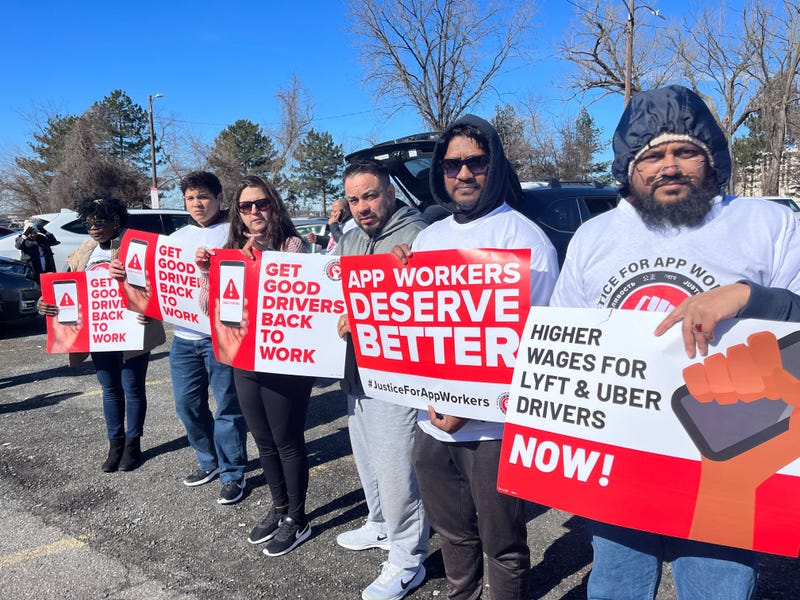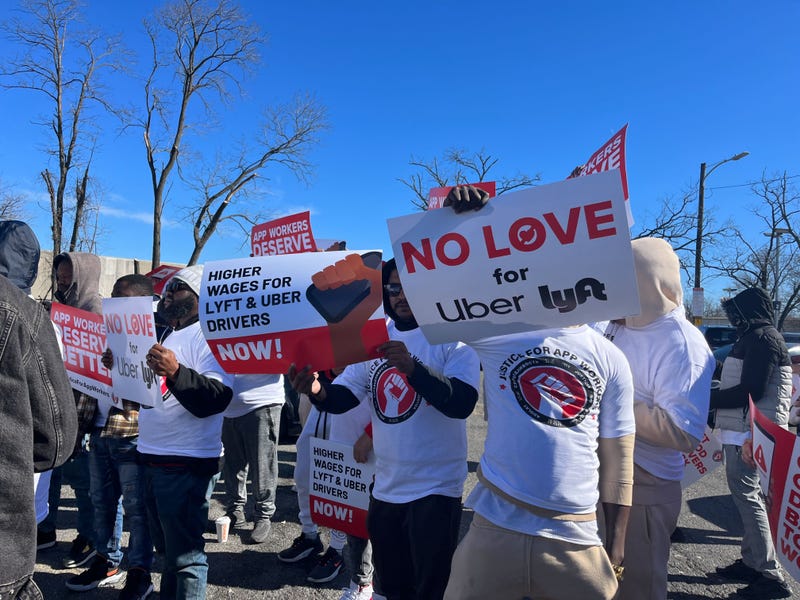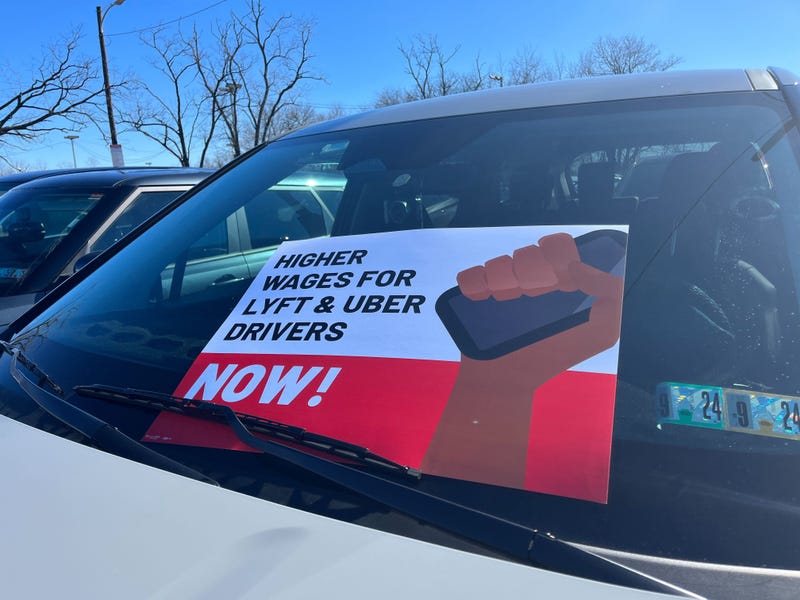
PHILADELPHIA (KYW Newsradio) — Dozens of drivers who say they are not feeling the love from app-based ride-hailing and delivery services Uber, Lyft, Uber Eats and DoorDash went on strike near Philadelphia International Airport for two hours on Valentine’s Day. Their major concerns are driver pay, driver safety and the handling of passenger complaints.
The action was one of several happening simultaneously in cities across the country involving thousands of ride-hailing and delivery workers.
Uber and Lyft drivers planned midday demonstrations at airports and daylong strikes in Chicago; Philadelphia; Pittsburgh; Miami; Orlando and Tampa, Florida; Hartford, Connecticut; Newark, New Jersey; Austin, Texas; and Providence, Rhode Island, according to Justice for App Workers, the group organizing the effort.
Uber said Tuesday that, based on past walkouts, it didn't expect the strike to have much impact on its operations.
“These types of events have rarely had any impact on trips, prices or driver availability,” Uber said in a statement. “That’s because the vast majority of drivers are satisfied.”

Rachel Gumpert, a spokesperson for Justice for App Workers, described ride-hailing as a “mobile sweatshop,” with some workers routinely putting in 60 to 80 hours per week. The organization is seeking higher wages, access to health care and an appeals process so companies can’t deactivate drivers without warning.
Fabian Romero, an organizer with the Independent Drivers Guild, says the companies take too large a cut from earnings for drivers to make a living.
“For a $10 ride, Uber, Lyft, usually takes $7 and give us three. We have to pay the car, the gas, all expenses, and they take the 30%,” Romero said.
Driver Ali Khawaja of Cherry Hill says the companies have taken a progressively larger cut of their earnings over the years.
“I've been doing this thing for the last nine years. In the beginning, they used to take only 20-25%. Then they moved to 28. Slowly, slowly. But at this moment, they are taking at least 50 — and in many cases, more than 50%”

Driver Yan Carlos said the percentage the companies take is unclear because there’s a lack of transparency. He described a recent 213-mile, $600 ride to State College he accepted for which he earned only $190.
Uber and other companies that rely on self-employed gig workers say those workers appreciate the flexibility of the job. But many gig workers are pushing to unionize, saying that would give them the ability to bargain over compensation, benefits and safety concerns.
“They enforce the safety for the passenger, but we don't have any security,” Romero said.
And passenger complaints can be a real problem, said Will Banks, a driver from Darby: “Sometimes, when customers complain, they don't investigate. They just deactivate our account.”
But ride-hailing companies say they already pay a fair wage and have an appeals process in place for deactivations.
Earlier this month, Lyft said it began guaranteeing that drivers will make at least 70% of their fares each week, and it lays out its fees more clearly for drivers in a new earnings statement. Lyft also unveiled a new in-app button that lets drivers appeal deactivation decisions.
“We are constantly working to improve the driver experience,” Lyft said in a statement. Lyft said its drivers make an average of $30.68 per hour, or $23.46 per hour after expenses.
Uber said its drivers make an average of $33 per hour. The company also said it allows drivers to dispute deactivations.
